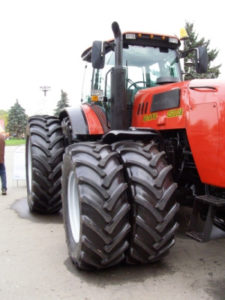Top Tips for Staying Safe Around Agriculture Equipment
Top Tips for Staying Safe Around Agriculture Equipment
On farms around the San Jose area, workplace injuries are often caused by accidents with agricultural equipment. Stationary equipment like grain augers and farm field equipment like tractors and combines pose significant risks to workers. Ultimately, the responsibility for preventing workplace injuries rests with the farm owner and managers. It’s essential to train each worker properly and provide the necessary safety equipment. Following basic safety practices helps prevent workers’ compensation claims and lost productivity.
Inspect the Equipment Before Each Use
New agricultural equipment is generally safer because it tends to feature the latest improvements for operation and handling. But even if you’re working with newer equipment, it’s essential to inspect it before each use. You should be familiar with the safety precautions, instructions, and maintenance schedule described in the owner’s manual. If you need to unclog, adjust, or service the equipment while it’s in use, always shut it off, disconnect the power source, and allow the moving parts to come to a complete stop.
Wear the Necessary Safety Gear
The consistent use of appropriate safety gear is essential for preventing agricultural work-related injuries. Farmworkers should arrive at work with sturdy, non-slip boots and without loose clothing that could become caught in the moving parts of farm equipment. Depending on the particular task, safety gloves, protective eyewear, coveralls, face shields, and respirators may be needed. Personal safety gear should be replaced when it becomes damaged.
Prohibit Riders on Tractors
The major cause of serious workplace injuries and deaths that occur on farm fields are due to tractor accidents, including accidents that involve riders. Farmworkers should never allow riders on attachments, hitches, fenders, or implements. A tractor should only have one occupant. Before starting a tractor, check the area to ensure there are no children nearby.
Reduce the Risk of Roll-Overs
All tractors should have roll-over protective structures (ROPS). These are legally required in newer tractors, but older tractors should be retrofitted with an OSHA-approved ROPS. Farmworkers should be careful to follow proper operating procedures to reduce the risk of roll-overs. These include starting slowly, only hitching loads to the drawbar, using front-end weights when necessary for stabilization, and avoiding steep slopes. Although prevention is best, it’s also essential to establish a response plan in the event of an accident with agricultural equipment.

